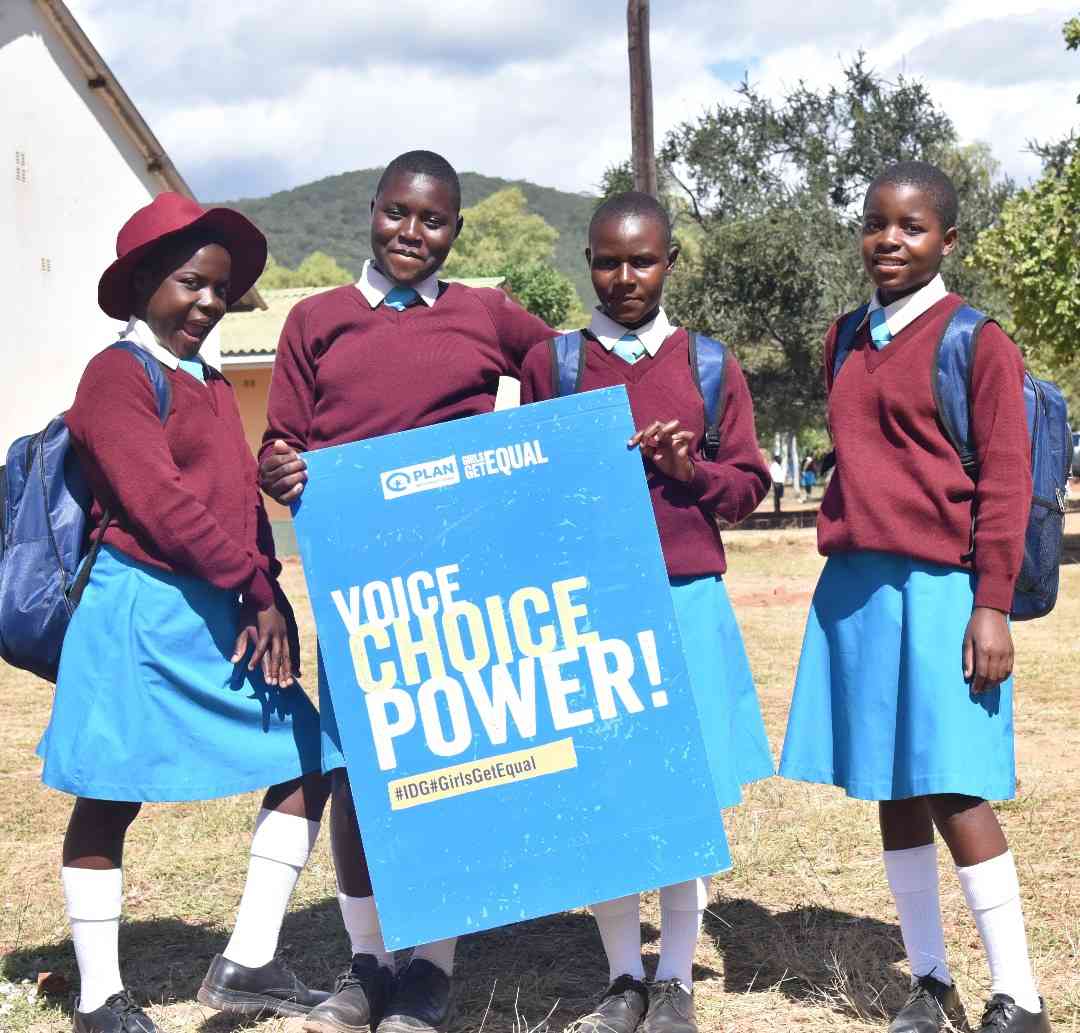
FOR several girls, navigating adolescence has proved to be one of the most difficult stages of their growth, more so, for those that live in crime-ridden communities.
This has led to a collapse of community structures, leaving adolescent girls and young women without social support and protection systems.
Adolescents are at greater risk of early pregnancy, drug and substance abuse as well as being recruited into gangs.
Zimbabwe has a high adolescent fertility rate of 108 per 1 000 among young women aged 15 to 19, according to data from the United Nations Population Fund.
This is against the average fertility rate of 101 births per 1 000 young women aged between 15 and 19 in sub-Saharan Africa.
This comes as Zimbabwe is battling a rising drug scourge affecting mostly the country’s poor and crime-ridden suburbs.
There is no official data on drug or substance abuse in the country, but anecdotal evidence points to rampant illicit drug use on the ground in the country.
It is estimated that 60% of young people aged between 16 and 35 could have used or are using drugs or similar substances.
- Abstinence key to HIV/Aids fight
- World Aids Day: Putting ourselves to the test
- Link between HIV and cancer
- Doctor raises alarm over rise in HIV cases among youths
Keep Reading
Due to poverty and unemployment, adolescents have been driven into artisanal gold panning, vending or working as housemaids, which has increased their vulnerability to early engagement in risky sexual behaviour, drug and substance abuse and dropping out of school, among other social ills.
For girls, they bear the brunt of the HIV epidemic due to gender inequalities which often result in them being disempowered to negotiate safe sex.
Nearly 98 000 adolescent girls aged between 10 and 19 were infected with HIV in 2022 — or 1 900 new infections every week — according to Unicef’s latest Global Snapshot on Children with HIV and Aids report, released ahead of World Aids Day last year.
While total infections among girls aged 10 to 19 have almost halved since 2010 — from 190 000 to 98 000 — girls were still more than twice as likely to contract HIV last year, than boys.
Globally, there were 270 000 new HIV infections among all children and adolescents aged 0 to 19 in 2022, bringing the total number of young people living with HIV to 2,6 million.
In the face of such challenges, Plan International, with support from the Global Fund through the United Nations Development Programme (UNDP) and coordinated by National Aids Council, is implementing a Dreams (Determined, Resilience Aids-free, Mentored and Safe) Modified project in four districts, namely Chimanimani, Kwekwe, Umguza and Umzingwane.
The project is aimed at preventing HIV infection in adolescent girls and young women by keeping them in school, improving their ability to exercise their rights, reducing gender-based violence and increasing access to youth friendly services.
Comprehensive sexual and reproductive health services, HIV testing and counselling and social protection interventions using a gender responsive, youth-focused approach are key components of the Dreams (Modified) project.
According to data from Plan International Zimbabwe, from 2018 to 2020, the Dreams (Modified) project successfully retained 6 000 adolescent girls and young women in school through the payment of school fees, with the numbers increasing to 12 000 from 2020 to 2023.
Cumulatively, the project supported 10 957 adolescent girls and young women with examination fees.
In addition to school fees, the Dreams (Modified) project supported the same adolescent girls and young women with complete school uniforms, stationery and sanitary wear.
For Emmaculate Moyo, a 20-year-old girl from Kwekwe, the Dreams (Modified) project helped her forge a path for her future.
“I am very grateful to Plan International;,working under the Global Fund, for helping me with my school and examination fees, as well as ensuring the learning journey was easy,” she said.
“I passed my Advanced Level examinations with 13 points in the 2023 exams something that could not have happened if my fees had not been paid.
“Not only am I grateful for the school fees, but also for the comprehensive sexuality education lessons that I was able to attend while in school.
“This also went a long way in ensuring that I did not indulge in sexual activities, as I had knowledge of the risks of HIV.”
Sixteen-year-old Sharon Ndlovu from Umzingwane said at some point, she thought her life was doomed.
“My life will never be the same again. My mother was not able to pay the boarding fees for me and the school is paying for me using the money from the poultry project,” she said.
“We also eat chicken every Sunday, which is something I never dreamt of.
“I am grateful to the Dreams project for helping me and other girls in my school with the poultry project.”
Plan International Zimbabwe’s modified Dreams project manager Dean Chiparaushe said the exercise was based on equality and fairness.
“Inadequate HIV knowledge, lack of access to treatment and poor adherence to medication among adolescents, among other factors, further increase the risk of adolescent girls and young women to HIV, thus, the project reached to 181 899 in-school students from 110 schools with comprehensive sexuality education,” he said.
“These were based on human rights principles, advanced gender equality, rights and empowerment of adolescents.
“Plan International targeted adolescent girls and young women and their parents/caregivers through parent child communication sessions, ensuring community mobilisations for change, reaching to 52 988 adolescent girls and young women.
“The parent child communication sessions are designed to increase parents’ and adolescents’ knowledge about sexual and reproductive health and rights, sexual and gender-based violence and recognising harmful social norms that will form the basis from which they can have conversations.”
Chiparaushe said anecdotal evidence shows that families are experiencing improved interaction between parents and adolescent girls and young women on sexual and reproductive health issues since project inception.
He said poor access to health and sexual and reproductive health rights services by the adolescent girls and young girls in Chimanimani, Kwekwe, Umguza and Umzingwane remains a challenge in the journey to eradicating Aids by 2030.
Plan International, working with NAC with funding from the Global Fund through UNDP, empowered girls and young women by conducting “Stop the Bus” outreaches across the four districts over the six years, bringing services closer to the adolescent girls and young women and their influencing population groups.
“The outreaches provide a multi-sectoral intervention that brings HIV and gender-based violence prevention messages to community members in their local areas and immediately link them to medical, legal and counselling support services through a bus,” Chiparaushe said.
“The HIV testing and counselling that is done there engages adolescent girls and young women to know their status – linking them to services as relevant depending on test result. Services offered include HIV testing services, family planning/contraceptive services and commodities, with 35 597 adolescents reached in the past six years.”










